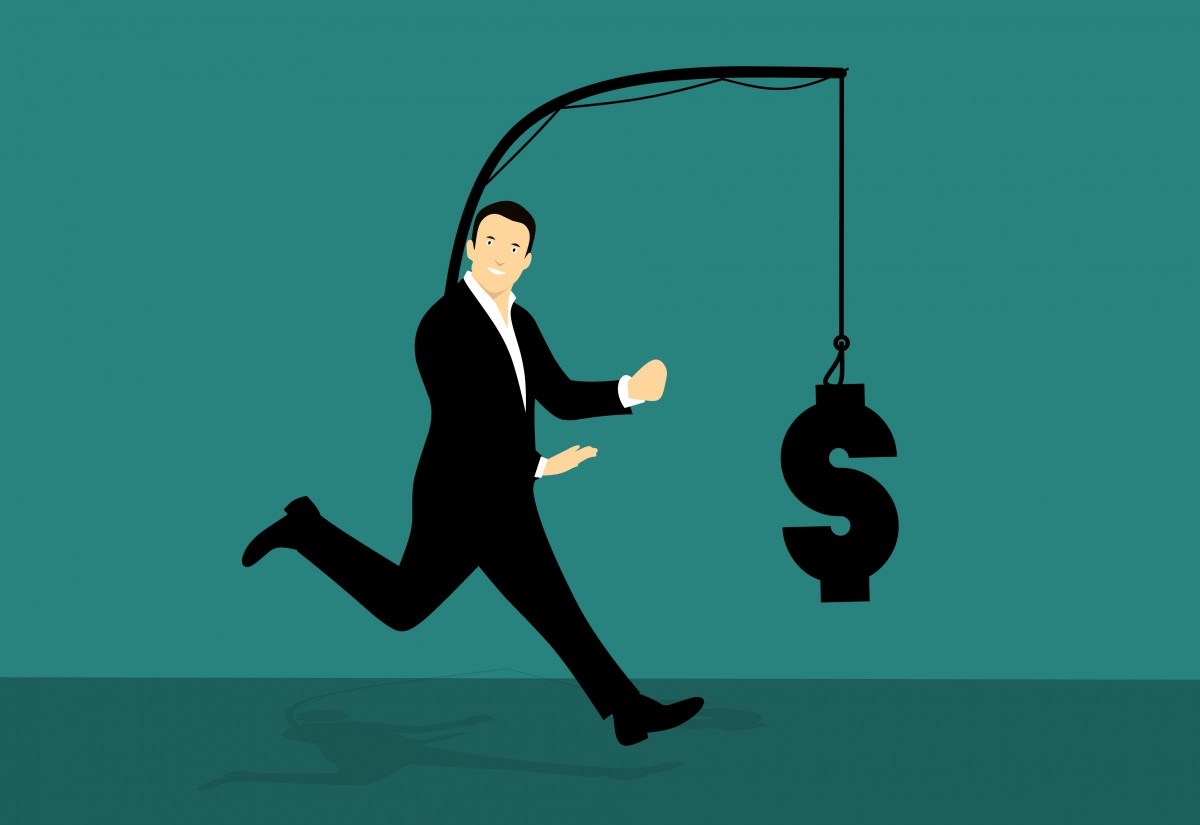Does the profit motive breed innovation, fair dealing, efficiency, and good corporate citizenship, as capitalism’s advocates claim?
The profit motive: it’s one of the concrete-reinforced supports holding capitalism together, and the lynchpin of many an argument as to why greed is, counterintuitively, actually good for society.
According to proponents of capitalism, it’s human nature to want to make a buck. By properly harnessing our greedy, wealth-seeking urges, the capitalist economy brought us a panopoly of life-improving inventions, from affordable cars to smartphones to chicken sandwiches. Hypothetically, any seeker of wealth would understand that the way to obtain it is by continuous innovation, fair dealing with vendors and customers (lest they choose to go elsewhere), hard work, and by being a good corporate citizen.
Unfortunately, reality doesn’t always work that way. The profit motive can and does lead to a wide array of suboptimal outcomes which, all put together, may be harming society in ways that can’t be corrected by having a dozen different fast food vendors all offering slight variations on a chicken sandwich.
Here’s a quick selection of examples yanked from the news cycle.
Remember how, years ago, tobacco companies denied the outsized cancer risk from using their products, and oil companies like Shell and Exxon Mobil understood that continuing to burn fossil fuels would lead to climate disaster, but kept the information hidden until it was too late? It turns out that the companies which produce PFAS also knew that their “forever chemicals” were toxic for forty years before the public did. Of course, the profit motive would likely have influenced all of these companies to deny, deflect, and obscure the truth about the harm their products cause, if being a good, honest corporate citizen would shrink their market share. Best to wait until society is addicted before the truth comes out, so quitting or switching to safer options is that much harder. Makes you wonder what other companies are hiding, doesn’t it?
Speaking of fossil fuel companies, consider the messes they leave behind. There’s more than just oil spills and increased downwind cancer risk. For example, when old fracking wells stop producing, the company that profited from exploiting the well has a choice. They can either do the right thing and put an expensive cap on it to make sure it doesn’t keep polluting, or they can walk away and leave the mess to the government and maybe it’ll be done at taxpayer expense, or maybe not. Then there are the climate costs, like cleaning up from worsened hurricanes, loss of biodiversity, and lost livelihoods around the world. The cumulative damage is staggering.
A recent conservative report, which only considered the effect of climate disasters on national GDP and which divided the cost between companies, consumers and governments, figured that oil companies should pay a total of $208 billion annually in reparations for their share of the damage. If only the profit motive had incentivized the right behavior all along!
Moving from the public to the personal, the profit motive can also have a malignant influence over whether we can get the medical care we need. Insurance companies are more than willing to take our money at the front, even jacking up fees and deductibles for the slightest reason. However, the profit motive compels them to hire people whose job is to look for reasons to deny claims, and to make it harder to fight those denials.
Last month, ProPublica reporting covered a way for those whose claims were denied to fight back. When a claim is denied, a file is generated at the company, which holds records related to the patient’s case, including reasons why any claim is denied. Federal regulations require claimants to be able to access that file, although, for obvious reasons, health insurance companies may not make it obvious or easy to do. The information in patient files can reveal quite a lot about cost-cutting at the expense of customer health. After all, claims cost money, and covering them makes it harder to profit.

Recently, the U.S. government was packing up some more older equipment to send to Ukraine. Some factions in American politics believe that the private sector is more efficient than government due to the profit motive, and this equipment had been left in the care of private contractors to maintain it in a state of mission readiness until it was needed in the field.
Unfortunately, it appears that the contractor found it more profitable to get paid as if it were doing its job, but not to actually maintain the equipment, most of which was in a shocking state of disrepair. During audits and inspections, howitzers which were said to be “fully mission capable” were found to have improperly aligned breech blocks. (If these had been used, they could have exploded and killed the crew around them.) What’s more, the contractor had also filled them with reused, degraded hydraulic fluid, which would lead to malfunctions had they been deployed as-is. Perhaps the very same profit motive which is supposed to make the private sector more efficient than government doesn’t work as well as advertised.
Finally, you may have noticed that inflation remains high on necessities like food. While much of the initial price increases could be attributed to supply chains broken by the pandemic, climate change, and the war in Ukraine, what’s keeping them sky-high appears to be “greedflation.” That’s when the prices go up, but they don’t come back down and corporations pocket record profits at the same time. Convenient, that.
At best, the profit motive is an incentive to engage in economic activity, and not even the kind that solves problems which aren’t profitable to fix. It’s not the virtue that advocates of greed and the current capitalist market system make it out to be, and there’s no guarantee that it motivates people and companies to drive innovation, deal fairly with customers and vendors, or to be good corporate citizens. At worst, it causes outcomes which actually harm the world and the people in it. What the profit motive does need is regulation, which, all too often, is rolled back in the name of making a profit.
How’s that working out for us?
Related: Will Sacrifice Zones Save the Planet?


Join the conversation!